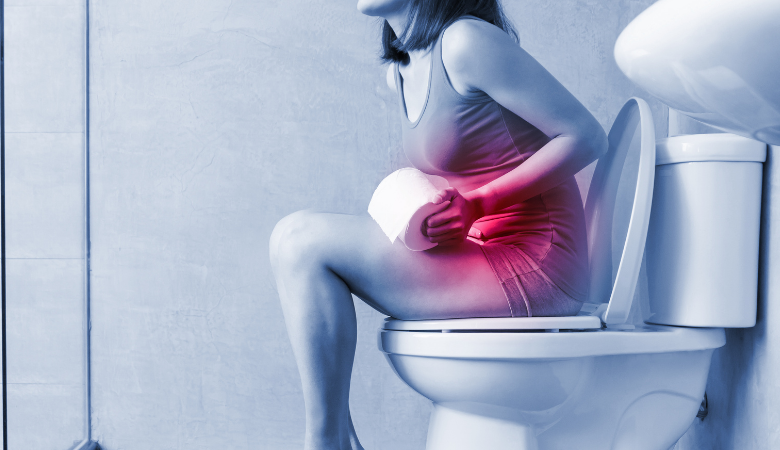10 Most Effective Home Remedies for Constipation

Struggling with constipation? Do you feel bloated and uncomfortably full after each meal? If so, you may have chronic constipation, which means that you struggle to pass stools more than three times per week. Chronic constipation can be uncomfortable, embarrassing, and even painful; in addition to bloating and cramping, constipation can also lead to haemorrhoids and diverticular disease. Fortunately, there are plenty of natural remedies for constipation that you can use at home to relieve your symptoms and get things moving again! Here are ten effective natural home remedies for constipation that you can try right now.
1) Water
Water helps regulate bowel movements by stimulating peristalsis, a series of muscle contractions that move food along your digestive tract.
Water also hydrates your large intestine (the colon), which can soften faecal matter and help it pass more easily.
Make sure you’re drinking at least eight 8-ounce glasses of water each day—more if you live in a hot or humid environment.
And drink even more if you exercise regularly or tend to be constipated frequently.
You can also try over-the-counter electrolyte solutions to increase your water intake.
2) Fibre
This is a common home remedy and fibre helps prevent constipation by making bowel movements more regular.
You can get fibre from foods like oats, fruits, vegetables, beans and whole grains.
Some examples of high-fibre foods are bran cereal (1/2 cup has 6 grams of fibre), kidney beans (half a cup has 15 grams), carrots (one medium carrot has 5 grams) and apples (one medium apple has 4 grams).
Make sure to drink lots of water along with these high-fibre foods.
The American Dietetic Association recommends getting 25 to 30 grams of fibre daily from food if you’re a woman, and 38 to 50 grams if you’re a man.
3) Magnesium Citrate
This popular home remedy is known to help relieve constipation by easing bowel movements.
Magnesium citrate is available over-the-counter and in many grocery stores, as well as drugstores and pharmacies.
The recommended dose is up to 200 milligrams, which can be taken once or twice a day.
There are also various forms of magnesium citrate, so check with your doctor before taking any new supplements.
Also, if you experience diarrhoea after taking magnesium citrate, stop taking it immediately and consult your doctor.
If you experience no negative side effects and you don’t find relief within two days, see your doctor.
You may have another condition that requires different treatment. For example, iron supplements should not be taken at the same time as magnesium citrate because they both cause gastrointestinal distress when combined.
As always, speak with your doctor before taking any new medications or changing your diet in any way.
4) Cascara Sagrada
If you have mild constipation, try cascara sagrada. This herbal remedy, which comes from a tree found in South America, works by removing toxins and stimulating peristalsis, allowing food to move through your intestines more smoothly.
It’s also high in phenolic compounds that decrease inflammation and help alleviate pain.
The recommended dose is 3 capsules of 500 milligrams twice daily. You can purchase it in most health-food stores or online.
Look for brands containing 50 per cent or higher hydroxycinnamic acid.
You should begin to feel relief within three days of taking it regularly.
Avoid taking Cascara sagrada if you are pregnant or breastfeeding, as well as if you have ulcers, diverticulitis, appendicitis, Crohn’s disease or irritable bowel syndrome (IBS).
Some people may experience mild side effects such as nausea and cramping when they first start taking Cascara sagrada; these usually go away after a few days.
Consult with your doctor before using any herbal remedies if you are on prescription medications because some herbs can interact with prescription drugs.
5) Papaya leaf tea
Papaya leaves have anti-parasitic properties that help to stimulate bowel movements and cleanse your digestive tract.
Papaya leaf tea is one of nature’s best home remedies for constipation!
How to prepare:
- Boil 1 tablespoon of dried papaya leaves in a cup of water until it is reduced to half, or make a fresh tea by boiling 2 tablespoons of fresh leaves with 1 teaspoon of cinnamon bark, cardamom pods, and gingerroot.
- You can add sugar or honey if desired.
- Allow it to cool before drinking.
This will give you quick relief from constipation!
Note: Do not use these herbs if you are pregnant.
6) Castor oil pack
This is one of the most effective home remedies for constipation, and it’s based on a traditional Native American practice.
Castor oil comes from castor beans, which are part of the castor plant family (Ricinus communis).
When combined with cotton and heated over the skin, it can dissolve compacted faeces in your intestinal tract.
To use castor oil packs at home, heat several tablespoons of pure liquid castor oil over warm water.
7) Psyllium Husk Powder
According to WebMD, psyllium is an effective remedy for constipation.
You can use it both long-term and short-term.
Long-term use can help you eliminate your dependence on laxatives, while short-term use can help relieve temporary constipation.
How does it work?
Psyllium absorbs water in your gut, which bulks up stools and speeds up transit time through your intestines.
It also retains water so that your stool remains soft, reducing straining during elimination.
Finally, psyllium helps reduce cholesterol levels by binding with bile acids. As a result, these excess bile acids are excreted from your body as waste rather than reabsorbed into circulation.
8) Bentonite Clay
A number of home remedies use bentonite clay to treat constipation.
It works by absorbing fluids from food and forming a gel-like substance that lubricates your intestinal walls, allowing waste to pass through.
Its main side effect is diarrhoea, which can be prevented by taking it with food or milk.
You can make a mixture of bentonite clay powder and water or just buy pre-made capsules at most health stores.
Mix 1 tablespoon with 2 cups of warm water until it forms a gel-like consistency, then drink immediately while standing up.
9) Epsom Salt Bath
Epsom salt is made from a naturally occurring magnesium sulfate, and soaking in an Epsom salt bath can help relieve constipation.
Epsom salt improves circulation, which helps to relieve constipation.
To use Epsom salt to cure constipation at home, add 1 cup of Epsom salts to a warm bath and soak for 20 minutes or so each day until you see relief.
You can also dissolve 2 tablespoons of Epsom salts in a glass of water and drink it each day.
Note: If you are pregnant or have certain health conditions (such as kidney disease) ask your doctor before using Epsom salts. Consult your doctor if symptoms do not improve after two weeks’ time.
10) Flaxseed oil
Flaxseed oil is rich in omega-3 fatty acids, which help keep your digestive system functioning properly.
If you’re looking to fix constipation, flaxseed oil is a natural solution that may help.
Add a tablespoon of flaxseed oil to your diet once or twice a day to get relief from constipation.
Also, be sure to drink plenty of water. Staying hydrated will ensure that your stool moves easily through your intestines and prevents constipation from occurring in the first place.
By adding more fibre to your diet and drinking plenty of water, you can naturally cure constipation at home with ease.
Stimulant Laxatives
Because laxatives are by definition constipating, you should use them only as a last resort when all other natural home remedies for constipation have failed.
Though milder stimulant laxatives like Senokot or Dulcoflax (Read more: Dulcoflex Tablet Uses in Hindi) are among the best over-the-counter laxatives, they still aren’t recommended for more than one to two weeks.
Overuse can lead to dependent bowel syndrome and diarrhoea, as well as worsening constipation in many cases.
It’s also important to know that mixing nonsteroidal anti-inflammatory drugs (NSAIDs) like aspirin or ibuprofen with stimulant laxatives is a potentially dangerous combination that can lead to severe abdominal pain and kidney damage.
Conclusion
The reason you’re constipated is only one part of a larger picture. Using a home remedy to treat constipation doesn’t fix underlying health issues, so it’s important to follow up with your doctor if your constipation symptoms persist or worsen after using one of these treatments.



